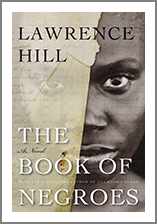Guest post by UFV Writer-in-Residence Jen Sookfong Lee
Writers talk a lot (and worry a lot) about inspiration. Where do we get our ideas? How do we know if our ideas will make good stories or poems or screenplays? What if someone else has already written this idea? What if I never get a good idea again?
 Photo Credit: Wiesbaden112.de via Compfight cc
Photo Credit: Wiesbaden112.de via Compfight cc
Often, what writers are looking for is what I call The Big Premise. These are the types of stories that sound exciting and thrilling and complex! And many Big Premise books do really well in the very challenging world of publishing. The Orenda. Night Film. The Book of Negroes. These are the books that are made into movies, that are filled with politics and social commentary and characters who triumph over oppression. These are the books that people talk about at parties.
However, not all of us can write huge stories with huge plots and timely subject matter. But that doesn’t mean the quieter books, the ones about human relationships and the ways in which we live our daily lives, are any less valuable or less interesting. Some of my favourite books are the ones that explore the intimate lives of characters that could be my family, my friends, my neighbours. A Complicated Kindness. Lives of Girls and Women. Fruit. These are smaller stories in scope, but their impact isn’t any less for that. They explore love and hate, sexuality and gender, happiness and despair. All of these are universal human experiences.
In my time here at UFV, I’ve found that many students are reluctant to look inward for ideas and that they’re chasing The Big Premise. These ideas are timely and epic, but even a Big Premise needs to have a counterpoint, a smaller human narrative that readers can connect to. Even in The Book of Negroes, one of the most epic novels about slavery ever written, Lawrence Hill gives Aminata, his main character, a very real narrative about motherhood and loss.
This is where an author’s experiences make a difference. Even if we were never soldiers in World War Two, even if we never saved the world from a robot apocalypse, we still know how it feels to lose someone, to feel lonely, to live through challenges we thought would defeat us. And we can apply these to all of our stories, big or small.
But I want to say one last thing in defence of the smaller, quieter story. Sometimes we think our own lives aren’t very interesting. They may not be, especially when we compare them to narratives of great adversity. But our lives are also full of emotional truth, survival, and hard decisions. There is nothing boring about any of this. The best ideas can come from anywhere, including the events you’ve lived through or the relationships you’ve lost. Readers want, more than anything, to read a story and think, “Yes! I know exactly how this feels!”
How do we accomplish this? By accessing our own experiences or emotions and writing the story that is meaningful to us. After all, when we care, our readers care.


Comments are closed.